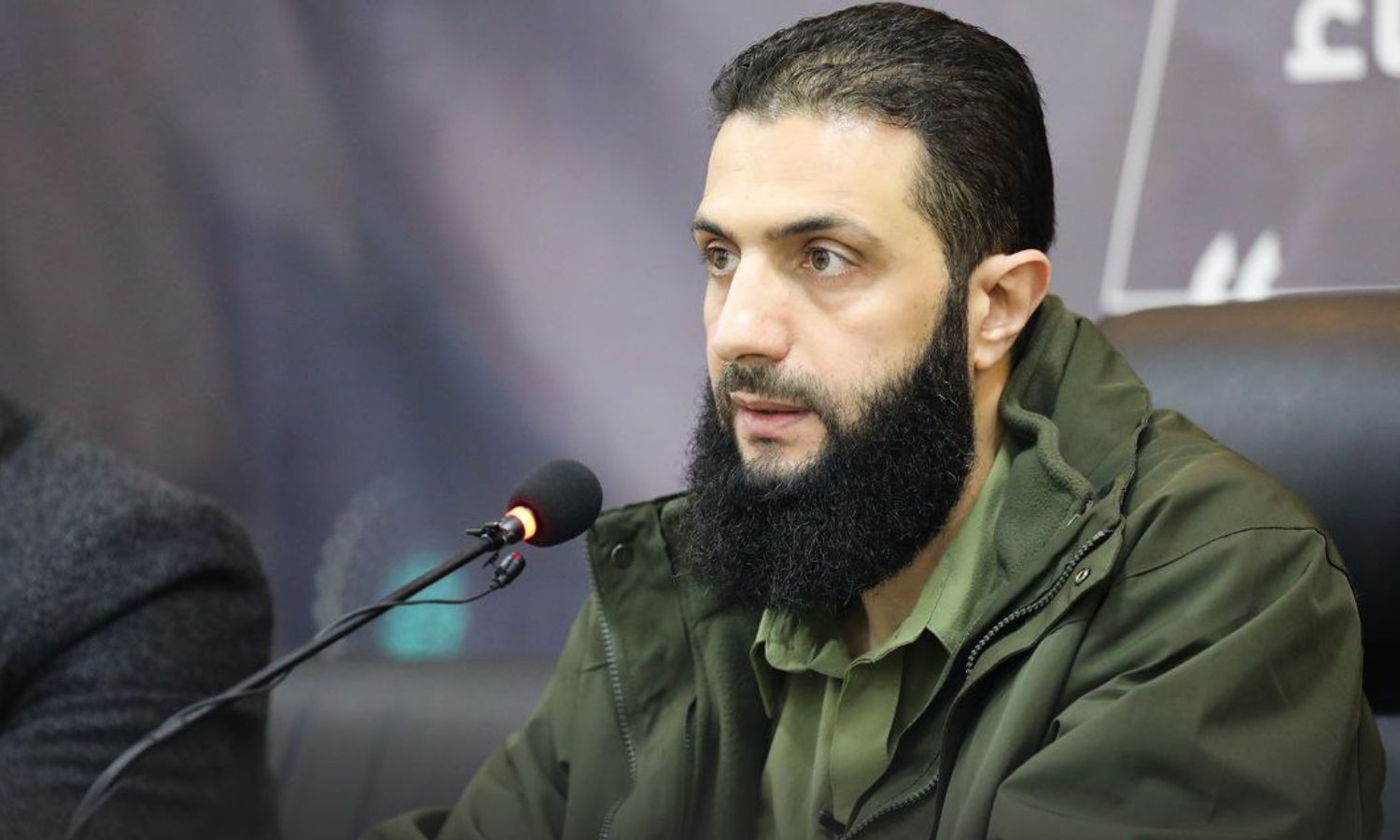
Syria’s Aspiring Leader Promises Reform—in Due Time
|
الاستماع للمقال صوتياً
|
WSJ- WHIA
DAMASCUS, Syria
—Islamist rebel leader Abu Mohammed al-Jawlani swapped out his military fatigues for a suit on Monday, positioning himself as a statesman who can unite Syria and responsibly manage relations with its neighbors.
Sitting in the cabinet building of the capital his forces seized this month, Jawlani told foreign journalists that Syria’s new government plans to launch a process to overhaul the country’s constitution and institutions. He cautioned, however, that it would take time.
“People have big ambitions, but today we must think realistically, because Syria has many problems, and they won’t be solved with a magic wand,” Jawlani said. “It needs patience.”
The country isn’t ready for elections, he said, because it is mired in turmoil, and many Syrians remain displaced by the civil war. The militant leader, who the U.S. has designated a terrorist, spoke the same day that the man he deposed, former President Bashar al-Assad, defended his decision to flee to Russia, ending more than 50 years of his family’s brutal rule.
Jawlani also criticized Israel’s attacks inside the country, which continued on Monday, along with U.S. airstrikes targeting Islamic State operatives and camps.
His group, Hayat Tahrir al-Sham, led a coalition of rebels that swept into Damascus this month after pushing Assad’s forces from a series of other cities in a lightning attack that drove Assad from power.
The rebel leader, who was formerly affiliated with Islamic State and al Qaeda, and his group now find themselves in control of much of Syria. The international community has yet to decide how much to trust them and is closely watching for evidence his disavowal of his extremist roots is genuine and that his government will respect Syria’s many ethnic and religious divisions.
He faces challenges not only from those internal rifts but also from global and regional powers like the U.S., Turkey and Israel all using proxies or force of arms to advance their interests in the country.
Jolani Offers Putin a Chance to Rebuild Ties with Syria; First Direct, Shocking Message to Moscow
“We are certainly striving to achieve justice,” Jawlani said.
Jawlani recently dropped his nom de guerre along with his battle gear and started using his real name, Ahmed al-Sharaa. The Federal Bureau of Investigation is offering a reward of as much as $10 million for information about him. HTS itself is also labeled a terror group by the U.S. and the United Nations.
Jawlani criticized the labels on him and HTS, arguing that atrocities committed by Assad’s regime should also be considered acts of terror.
“The real terrorist is the one who killed people in Saydnaya and dropped barrel bombs,” he said, referring to a notorious prison run by the Assad regime and the improvised explosives the regime dropped on its opponents.
HTS was originally called the Nusra Front, an organization that represented al Qaeda in Syria. The group announced a break with al Qaeda in 2016 and changed its name as a part of what the group has said is a long shift away from the cause of international jihad.
The group has given up international attacks and promised to protect minority groups in Syria under its governance. At the same time, it also has vowed to impose Islamic rule, though what form that will take isn’t clear.
The terrorism designation is an obstacle to international engagement with the new government in Damascus when it is at the center of a geopolitical maelstrom.
Jawlani also spoke about the group’s complicated position with regard to Israel. The rebel offensive that began in November took advantage of a military weakening of Iran and its Lebanese militia ally Hezbollah by a campaign of Israeli airstrikes. Those strikes included attacks in Syria, which Iran used as a pipeline to supply weapons for Hezbollah.
Israel has launched hundreds of strikes in Syria in recent days that destroyed much of the former regime’s military equipment, and it has sent troops into a buffer zone set up between the countries after their 1973 war. The strikes, which have shaken Damascus on recent nights, have put the rebel group in a difficult position as it tries to assume control of the country.
Jawlani said Israel was justified in the earlier attacks aimed at Iranian-backed actors, but said the rebels had removed the threat.
“So the excuse is gone,” he said. “There is no justification for the Israelis to bomb Syrian facilities or advance inside Syria.”
Write to Jared Malsin at jared.malsin@wsj.com
